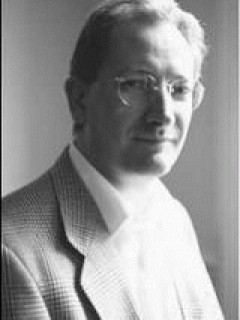While Wroath is an MRS Conference novice, Russell is a veteran. This year could, however, be the end of the road for him. "I probably won't go next year," he says. "At each one I tell myself that it will be better next time, but I've eventually realised that it's not."
He bemoans the lack of clients, and feels that the conference is targeted more at suppliers. "If that's the idea, to get the agencies together to discuss things, then great the client should drop out," he says.
"But from my perspective, it is a lot of money for a client to pay out when you've got marketers sitting back at base thinking: 'So what happens when you go to this two day conference?' I'd love to be able to say that I come away and learn as well as network but the learning is minimal."
Despite the slightly jaded air that sets in by the last day, Russell and Wroath vote two papers a definite hit.
The first is the one by Malcolm Evans of Added Value and Michael Harvey of Guinness UDV, 'Decoding competitive propositions: A semiotic alternative traditional advertising research'. The second is the one by Peter Walter of ?What if! and Van den Bergh Foods' Stephen Donaldson called 'Giving impact to consumer insight'.
Russell welcomes the fact that both represent new thinking and insights into areas pertinent to his business, and which he will pursue. "Both of them are about presentation not methodology and how you put research to good use," he says. Wroath, meanwhile, has a different angle.
"I thought that the 'Decoding' presentation was interesting because it showed how to make research a bit more tangible," she says. "It talked about how when you have something new, say a technique, you can actually go to clients and say look what we've got it's here, in this box, it's new, it's different." The normal way of achieving differentiation, calling a group by a different name, pales by comparison.
Is there a way of satisfying the desires of both agencies and clients? Because if agencies do want to pick over the latest methodologies, Russell argues that clients would rather not join the party. They're interested in results, not so much how they're achieved, so to that extent the buck stops with the client researcher.
Wroath's view is that "I think the conference should sometimes have us being introspective and chewing the cud, because that's how you generate new ideas." The solution? Perhaps there should be an agency day followed by a client day, says Russell. At least it would prove easier to justify, both in terms of time spent away from the office, and cost. He could bring more of his staff, and it might offer a better return on investment for agencies. He would also welcome a way to get a chance to learn what other agencies can offer, possibly through an appointment system, at the conference.
Maybe it's a question of different strokes for different people, because Wroath values the conference not just as a new business opportunity but also as a chance because of the under-30 first timer ticket to network and build up relationships with clients and colleagues of the same age. "They're the people, after all, we're going to be dealing with," she says. "We may justify it by saying next year maybe I won't go but we'll send someone else who is younger."
So what is the value of the conference in the short-term? For Wroath, there is the opportunity to talk about what went on at the next bi-monthly forum of the agency's education unit, called Quest. "I think it's quite important to have a fairly formal feedback opportunity because otherwise there is the temptation to come along and then forget about it," she says. "We are also going to have a session where we think about writing papers."
The final end of term report seems to be 'encouraging, but must try harder'. Both our victims urge the MRS to think again about the choice of venue, given that clients are relocating out of London, and to give a higher priority to making the technical side of presentations run more smoothly. Oh, and they also reckon that the MRS should frisk delegates and speakers for mobile phones and ensure that they are switched off.
Will Russell and Wroath be back? For all their protestations probably!


